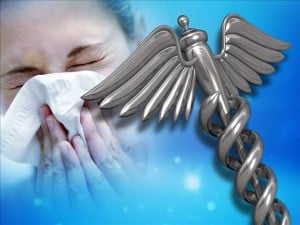North Carolina reports first flu-related death of the season

RALEIGH, NC (WWAY) — The North Carolina Department of Health and Human Services has confirmed the first flu-related death of the 2025-2026 season.
Officials say an adult in the western part of the state died during the first week of October due to complications from the flu. No additional information will be released to protect the family’s privacy.
“This is a sad reminder that flu infections can be serious and, in some cases, even fatal,” said State Epidemiologist Dr. Zack Moore. “We encourage everyone to take preventative measures against flu and other respiratory illnesses like getting your yearly flu shot, regularly washing hands, covering your cough, and staying home when sick to avoid infecting others.”
Health officials say flu, COVID-19, and RSV cases are expected to rise in the coming months. NCDHHS says vaccines remain the best way to prevent severe illness, hospitalization, and death, especially for older adults, young children, pregnant women, and those with chronic health conditions such as asthma, diabetes, or heart disease.
During last year’s respiratory virus season, North Carolina saw its highest number of flu-associated deaths since the 2009 H1N1 pandemic, with 544 reported statewide. Nationally, there were 280 pediatric flu deaths, nearly half involving children with no known underlying conditions.
The CDC recommends annual flu vaccines for everyone 6 months and older. COVID-19 and RSV vaccines are also available for eligible individuals, including pregnant women and adults 50 and older who are at increased risk.
Vaccines are available at pharmacies, doctors’ offices, local health departments, and federally qualified health centers. Uninsured children may qualify for free vaccines through the Vaccines for Children program.
State health leaders also emphasize early testing and treatment. Antiviral medications can help prevent flu or COVID-19 infections from becoming more severe if started soon after symptoms begin.
To help slow the spread of respiratory illnesses, health officials recommend:
- Washing hands frequently or using hand sanitizer
- Avoiding touching your face
- Cleaning commonly touched surfaces
- Covering coughs and sneezes
- Staying home when sick and avoiding close contact with others




